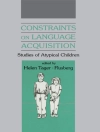Information structure deals with the linguistic forms and techniques that support the integration of what is said into the current informational and attentional state of the addressee. This shows in categories like topic-comment structuring, focus to highlight expressions, marking of givenness and of presupposed information, and ways to indicate that the information provided is restricted. The book relates infor-mation structure to theoretical models of grammar, to computation and modelling and brings together what is known about the expression of information structure in human language with regard to its empirical investigation, its psycholinguistic aspects and the acquisition of information structure.
Since the need to integrate what is said into the informational and attentional state of the addressee is central to all human communication, it is not surprising that all natural languages have developed devices to express information structural cate-gories. To illustrate this, the book also provides concrete and theory independent descriptions of the information structural encoding strategies of individual languages of different types .
The book can be used as a textbook appropriate for advanced undergraduate and graduate courses; it also provides information for linguists that are not specialists in the field.
Sobre o autor
Manfred Krifka, Humboldt-Universität zu Berlin, Germany; Renate Musan, University of Osnabrück, Germany.












